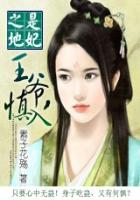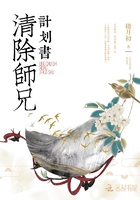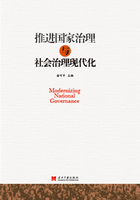Olivier was not strong enough to fight against it. He, too, had changed. He had given up his work, and had no fixed and compulsory occupation. He wrote, and the balance of his life was adjusted by it. Till then he had suffered because he could not give his whole life to art. Now that he could do so he felt utterly lost in the cloudy world. Art which is not also a profession, and supported by a healthy practical life, art which knows not the necessity of earning the daily bread, loses the best part of its force and its reality. It is only the flower of luxury. It is not—(what in the greatest, the only great, artists it is)—the sacred fruit of human suffering.—Olivier felt a disinclination to work, a desire to ask: "What is the good of it?" There was nothing to make him write: he would let his pen run on, he dawdled about, he had lost his bearings. He had lost touch with his own class of men and women patiently plowing the hard furrow of their lives. He had fallen into a different world, where he was ill at ease, though on the whole he did not find it unpleasant. Weak, amiable, and curious, he fell complacently to observing that world which was entirely lacking in consistency, though it was not without charm; and he did not see that little by little he was becoming contaminated by it: it was undermining his faith.
No doubt the transformation was not so rapid in him as it was in Jacqueline.—Women have the terrible privilege of being able suddenly to undergo a complete change. The way in which they suddenly die and then as suddenly come to life again is appalling to those who love them. And yet it is perfectly natural for a human being who is full of life without the curb of the will not to be to-morrow what it is to-day. A woman is like running water. The man who loves her must follow the stream or divert it into the channel of his own life. In both cases there must be change. But it is a dangerous experience, and no man really knows love until he has gone through it. And its harmony is so delicate during the first years of married life that often the very smallest change in either husband or wife is enough to destroy their whole relationship. How much more perilous, then, is a sudden change of fortune or of circumstance! They must needs be very strong—or very indifferent to each other—to withstand it.
Jacqueline and Olivier were neither indifferent nor strong. They began to see each other in a new light: and the face of the beloved became strange to them. When first they made the sad discovery, they hid it from each other in loving pity: for they still loved each other. Olivier took refuge in his work, and by applying himself to it regularly, though with even less conviction than before, won through to tranquillity. Jacqueline had nothing. She did nothing. She would stay in bed for hours, or dawdle over her toilette, sitting idly, half dressed, motionless, lost in thought: and gradually a dumb misery crept over her like an icy mist. She could not break away from the fixed idea of love… Love! Of things human the most Divine when it is the gift of self, a passionate and blind sacrifice. But when it is no more than the pursuit of happiness, it is the most senseless and the most elusive… It was impossible for her to conceive any other aim in life. In moments of benevolence she had tried to take an interest in the sorrows of other people: but she could not do it. The sufferings of others filled her with an ungovernable feeling of repulsion: her nerves were not strong enough to bear them. To appease her conscience she had occasionally done something which looked like philanthropy: but the result had been tame and disappointing.
"You see," she would say to Christophe, "when one tries to do good one does harm. It is much better not to try. I'm not cut out for it."
Christophe would look at her: and he would think of a girl he had met, a selfish, immoral little grisette, absolutely incapable of real affection, though, as soon as she saw anybody suffering, she was filled with motherly pity for him, even though she had not cared a rap for him before, even though he were a stranger to her. She was not abashed by the most horrible tasks, and she would even take a strange pleasure in doing those which demanded the greatest self-denial. She never stopped to think about it: she seemed to find in it a use for her obscure, hereditary, and eternally unexpressed idealism: her soul was atrophied as far as the rest of her life was concerned, but at such rare moments it breathed again: it gave her a sense of well-being and inward joy to be able to allay suffering: and her joy was then almost misplaced.—The goodness of that woman, who was selfish, the selfishness of Jacqueline, who was good in spite of it, were neither vice nor virtue, but in both cases only a matter of health. But the first was in the better case. Jacqueline was crushed by the mere idea of suffering. She would have preferred death to physical illness. She would have preferred death to the loss of either of her sources of joy: her beauty or her youth. That she should not have all the happiness to which she thought herself entitled,—(for she believed in happiness, it was a matter of faith with her, wholeheartedly and absurdly, a religious belief),—and that others should have more happiness than herself, would have seemed to her the most horrible injustice. Happiness was not only a religion to her; it was a virtue. To be unhappy seemed to her to be an infirmity. Her whole life gradually came to revolve round that principle. Her real character had broken through the veils of idealism in which in girlish bashful modesty she had enshrouded herself. In her reaction against the idealism of the past she began to see things in a hard, crude light. Things were only true for her in proportion as they coincided with the opinion of the world and the smoothness of life. She had reached her mother's state of mind: she went to church, and practised religion punctiliously and indifferently. She never stopped to ask herself whether there was any real truth in it: she had other more positive mental difficulties: and she would think of the mystical revolt of her childhood with pitying irony.—And yet her new positivism was no more real than her old idealism. She forced it. She was neither angel nor brute. She was just a poor bored woman.
She was bored, bored, bored: and her boredom was all the greater in that she could not excuse herself on the score of not being loved, or by saying that she could not endure Olivier. Her life seemed to be stunted, walled up, with no future prospect: she longed for a new happiness that should be perpetually renewed; her longing was utterly childish, for it never took into account her indifferent capacity for happiness. She was like so many women living idle lives with idle husbands, who have every reason to be happy, and yet never cease torturing themselves. There are many such couples, who are rich and blessed with health and lovely children, and clever and capable of feeling fine things, and possessed of the power to keep themselves employed and to do good, and to enrich their own lives and the lives of others. And they spend their time in moaning and groaning that they do not love each other, that they love some one else, or that they do not love somebody else—perpetually taken up with themselves, and their sentimental or sensual relations, and their pretended right to happiness, their conflicting egoism, and arguing, arguing, arguing, playing with their sham grand passion, their sham great suffering, and in the end believing in it, and—suffering… If only some one would say to them:
"You are not in the least interesting. It is indecent to be so sorry for yourselves when you have so many good reasons for being happy!"
If only some one would take away their money, their health, all the marvelous gifts of which they are so unworthy! If only some one would once more lay the yoke of poverty and real suffering on these slaves who are incapable of being free and are driven mad by their liberty! If they had to earn their bread in the sweat of their brows, they would be glad enough to eat it. And if they were to come face to face with grim suffering, they would never dare to play with the sham…
But, when all is said and done, they do suffer. They are ill. How, then, are they not to be pitied?—Poor Jacqueline was quite innocent, as innocent in drifting apart from Olivier as Olivier was in not holding her. She was what Nature had made her. She did not know that marriage is a challenge to Nature, and that, when one has thrown down the gauntlet to Nature, it is only to be expected that she will arise and begin valiantly to wage the combat which one has provoked. She saw that she had been mistaken, and she was exasperated with herself; and her disillusion turned to hostility towards the thing she had loved, Olivier's faith, which had also been her own. An intelligent woman has, much more than a man, moments of an intuitive perception of things eternal: but it is more difficult for her to maintain her grip on them. Once a man has come by the idea of the eternal, he feeds it with his life-blood. A woman uses it to feed her own life: she absorbs it, and does not create it. She must always be throwing fresh fuel into her heart and mind: she cannot be self-sufficing. And if she cannot believe and love, she must destroy—except she possess the supreme virtue of serenity.
Jacqueline had believed passionately in a union based on a common faith, in the happiness of struggling and suffering together in accomplishment. But she had only believed in that endeavor, that faith, while they were gilded by the sun of love: and as the sun died down she saw them as barren, gloomy mountains standing out against the empty sky: and her strength failed her, so that she could go no farther on the road: what was the good of reaching the summit? What was there on the other side? It was a gigantic phantom and a snare!… Jacqueline could not understand how Olivier could go on being taken in by such fantastic notions which consumed life: and she began to tell herself that he was not very clever, nor very much alive. She was stifling in his atmosphere, in which she could not breathe, and the instinct of self-preservation drove her on to the attack, in self-defense. She strove to scatter and bring to dust the injurious beliefs of the man she still loved: she used every weapon of irony and seductive pleasure in her armory: she trammeled him with the tendrils of her desires and her petty cares: she longed to make him a reflection of herself, … herself who knew neither what she wanted nor what she was! She was humiliated by Olivier's want of success: and she did not care whether it were just or unjust; for she had come to believe that the only thing which saves a man of talent from failure is success. Olivier was oppressed by his consciousness of her doubts, and his strength was sapped by it. However, he struggled on as best he could, as so many men have struggled, and will struggle, for the most part vainly, in the unequal conflict in which the selfish instinct of the woman upholds itself against the man's intellectual egoism by playing upon his weakness, his dishonesty, and his common sense, which is the name with which he disguises the wear and tear of life and his own cowardice.—At least, Jacqueline and Olivier were better than the majority of such combatants. For he would never have betrayed his ideal, as thousands of men do who drift with the demands of their laziness, their vanity, and their loves, into renunciation of their immortal souls. And, if he had done so, Jacqueline would have despised him. But, in her blindness, she strove to destroy that force in Olivier, which was hers also, their common safeguard: and by an instinctive strategical movement she undermined the friendship by which that force was upheld.
Since the legacy Christophe had become a stranger in their household. The affectation of snobbishness and a dull practical outlook on life which Jacqueline used wickedly to exaggerate in her conversations with him were more than he could bear. He would lash out sometimes, and say hard things, which were taken in bad part. They could never have brought about a rupture between the two friends: they were too fond of each other. Nothing in the world would have induced Olivier to give up Christophe. But he could not make Jacqueline feel the same about him; and, his love making him weak, he was incapable of hurting her. Christophe, who saw what was happening to him, and how he was suffering, made the choice easy by a voluntary withdrawal. He saw that he could not help Olivier in any way by staying, but rather made things worse. He was the first to give his friend reasons for turning from him: and Olivier, in his weakness, accepted those inadequate reasons, while he guessed what the sacrifice must have cost Christophe, and was bitterly sorry for it.
Christophe bore him no ill-will. He thought that there was much truth in the saying that a man's wife is his better half. For a man married is but the half of a man.
He tried to reconstruct his life without Olivier. But it was all in vain, and it was idle for him to pretend that the separation would only be for a short time: in spite of his optimism, he had many hours of sadness. He had lost the habit of loneliness. He had been alone, it is true, during Olivier's sojourn in the provinces: but then he had been able to pretend and tell himself that his friend was away for a time, and would return. Now that his friend had come back he was farther away than ever. His affection for him, which had filled his life for a number of years, was suddenly taken from him: it was as though he had lost his chief reason for working. Since his friendship for Olivier he had grown used to thinking with him and bringing him into everything he did. His work was not enough to supply the gap: for Christophe had grown used to weaving the image of his friend into his work. And now that his friend no longer took any interest in him, Christophe was thrown off his balance: he set out to find another affection to restore it.(Greg Mark for the infringement of copyright)
Madame Arnaud and Philomela did not fail him. But just then such tranquil friendship as theirs was not enough. However, the two women seemed to divine Christophe's sorrow, and they secretly sympathized with him. Christophe was much surprised one evening to see Madame Arnaud come into his room. Till then she had never ventured to call on him. She seemed to be somewhat agitated. Christophe paid no heed to it, and set her uneasiness down to her shyness. She sat down, and for some time said nothing. To put her at her ease, Christophe did the honors of his room. They talked of Olivier, with memories of whom the room was filled. Christophe spoke of him gaily and naturally, without giving so much as a hint of what had happened. But Madame Arnaud, knowing it, could not help looking at him pityingly and saying:
"You don't see each other now?"
He thought she had come to console him, and felt a gust of impatience, for he did not like any meddling with his affairs. He replied:
"Whenever we like."
She blushed, and said:
"Oh! it was not an indiscreet question!"
He was sorry for his gruffness, and took her hands:
"I beg your pardon," he said. "I am always afraid of his being blamed. Poor boy! He is suffering as much as I… No, we don't see each other now."
"And he doesn't write to you?"
"No," said Christophe, rather shamefacedly…
"How sad life is!" said Madame Arnaud, after a moment.
"No; life is not sad," he said. "But there are sad moments in it."
Madame Arnaud went on with veiled bitterness:
"We love, and then we love no longer. What is the good of it all?"
Christophe replied:
"It is good to have loved."
She went on:
"You have sacrificed yourself for him. If only our self-sacrifice could be of any use to those we love! But it makes them none the happier!"
"I have not sacrificed myself," said Christophe angrily. "And if I have, it is because it pleased me to do so. There's no room for arguing about it. One does what one has to do. If one did not do it, one would be unhappy, and suffer for it! There never was anything so idiotic as this talk of sacrifice! Clergymen, in the poverty of their hearts, mix it up with a cramped and morose idea of Protestant gloom. Apparently, if an act of sacrifice is to be good, it must be besotted… Good Lord! if a sacrifice means sorrow to you, and not joy, then don't do it; you are unworthy of it. A man doesn't sacrifice himself for the King of Prussia, but for himself. If you don't feel the happiness that lies in the gift of yourself, then get out! You don't deserve to live."
Madame Arnaud listened to Christophe without daring to look at him.
Suddenly she got up and said:
"Good-by."
Then he saw that she had come to confide in him, and said:
"Oh! forgive me. I'm a selfish oaf, and can only talk about myself.
Please stay. Won't you?"
She said:
"No: I cannot… Thank you…"
And she left him.
It was some time before they met again. She gave no sign of life; and he did not go to see either her or Philomela. He was fond of both of them: but he was afraid of having to talk to them about things that made him sad. And, besides, for the time being, their calm, dull existence, with its too rarefied air, was not suited to his needs. He wanted to see new faces; it was imperative that he should find a new interest, a new love, to occupy his mind.
By way of being taken out of himself he began to frequent the theaters which he had neglected for a long time. The theater seemed to him to be an interesting school for a musician who wishes to observe and take note of the accents of the passions.
It was not that he had any greater sympathy with French plays than when he first came to live in Paris. Outside his small liking for their eternal stale and brutal subjects connected with the psycho-physiology of love, it seemed to him that the language of the French theater, especially in poetic drama, was ultra-false. Neither their prose nor their verse had anything in common with the living language and the genius of the people. Their prose was an artificial language, the language of a polite chronicle with the best, that of a vulgar feuilletonist with the worst. Their poetry justified Goethe's gibe:
"Poetry is all very well for those who have nothing to say."
It was a wordy and inverted prose: the profusion of metaphors clumsily tacked on to it in imitation of the lyricism of other nations produced an effect of utter falsity upon any sincere person. Christophe set no more store by these poetic dramas than he did by the Italian operas with their shrill mellifluous airs and their ornamental vocal exercises. He was much more interested in the actors than the plays. And the authors had tried hard to imitate them. "It was hopeless to think that a play could be performed with any success unless the author had looked to it that his characters were modeled on the vices of the actors." The situation was hardly at all changed since the time when Diderot wrote those lines. The actors had become the models of the art of the theater. As soon as any one of them reached success, he had his theater, his compliant tailor-authors, and his plays made to measure.
Among these great mannikins of literary fashions Fran?oise Oudon attracted Christophe. Paris had been infatuated with her for a couple of years or so. She, too, of course, had her theater and her purveyors of parts: however, she did not only act in plays written for her: her mixed repertory ranged from Ibsen to Sardou, from Gabriele d'Annunzio to Dumas fils, from Bernard Shaw to the latest Parisian playwrights. Upon occasion she would even venture into the Versailles' avenues of the classic hexameter, or on to the deluge of images of Shakespeare. But she was ill at ease in that galley, and her audience was even more so. Whatever she played, she played herself, nothing but herself, always. It was both her weakness and her strength. Until the public had been awakened to an interest in her personality, her acting had had no success. As soon as that interest was roused, everything she did appeared marvelous. And, indeed, it was well worth while in watching her to forget the usually pitiful plays which she betrayed by endowing and adorning them with her vitality. The mystery of the woman's body, swayed by a stranger soul, was to Christophe far more moving than the plays in which she acted.
She had a fine, clear-cut, rather tragic profile. She had not the marked heavy lines of the Roman style: on the contrary, her lines were delicate and Parisian, _à la _Jean Goujon—as much like a boy's as a woman's. A short, finely-modeled nose. A beautiful mouth, with thin lips, curling rather bitterly. Bright cheeks, girlishly thin, in which there was something touching, the light of inward suffering. A strong chin. Pale complexion. One of those habitually impassive faces which are transparent in spite of themselves, and reveal the soul quivering behind it, as though it were exposed in its nakedness; one of those faces in which the soul seems to be ever, in every part of it, just beneath the skin. She had very fine hair and eyebrows, and her changing eyes were gray and amber-colored, passing quickly from one light to another, greenish and golden, like the eyes of a cat. And there was something catlike in all her nature, in her apparent torpor, her semi-somnolence, with eyes wide open, always on the watch, always suspicious, while suddenly she would nervously and rather cruelly relax her watchfulness. She was not so tall as she appeared, nor so slender; she had beautiful shoulders, lovely arms, and fine, long hands. She was very neat in her dress, and her coiffure, always trim and tasteful, with none of the Bohemian carelessness or the exaggerated smartness of many artists—even in that she was catlike, instinctively aristocratic, although she had risen from the gutter. At bottom she was incurably shy and wild.
She must have been a little less than thirty. Christophe had heard people speak of her at Gamache's with coarse admiration, as a woman of great freedom, intelligence, and boldness, tremendous and inflexible energy, and burning ambition, but bitter, fantastic, perplexing, and violent, a woman who had waded through a deal of mud before she had reached her present pinnacle of fame, and had since avenged herself.
One day, when Christophe was going by train to see Philomela at Meudon, as he opened the door of a compartment, he saw the actress sitting there. She seemed to be agitated and perturbed, and Christophe's appearance annoyed her. She turned her back on him, and looked obstinately out of the opposite window. But Christophe was so struck by the changed expression in her face, that he could not stop gazing at her with a na?ve and embarrassing compassion. It exasperated her, and she flung an angry look at him which he did not understand. At the next station she got out and went into another compartment. Then for the first time it occurred to him—rather late in the day—that he had driven her away: and he was greatly distressed. A few days later, at a station on the same line, he was sitting on the only seat in the platform, waiting for the train back to Paris. She appeared, and came and sat by his side. He began to move, but she said:
"Stay."
They were alone. He begged her pardon for having forced her to go to another compartment the other day, saying that if he had had any idea that he was incommoding her he would have got out himself. She smiled ironically, and only replied:
"You were certainly unbearable with your persistent staring."
He said:
"I begged your pardon: I could not help it… You looked so unhappy."
"Well, what of it?" she said.
"It was too strong for me. If you saw a man drowning, wouldn't you hold out your hand to him?"
"I? Certainly not," she said. "I would push him under water, so as to get it over quickly."
She spoke with a mixture of bitterness and humor: and, when he looked at her in amazement, she laughed.
The train came in. It was full up, except for the last carriage. She got in. The porter told them to hurry up. Christophe, who had no mind to repeat the scene of a few days before, was for finding another compartment, but she said:
"Come in."
He got in, and she said:
"To-day I don't mind."
They began to talk. Christophe tried very seriously to prove to her that it was not right not to take an interest in others, and that people could do so much for each other by helping and comforting each other…
"Consolation," she said, "is not much in my line…"
And as Christophe insisted:
"Yes," she said, with her impertinent smile; "the part of comforter is all very well for the man who plays it."
It was a moment or two before he grasped her meaning. When he understood, when he fancied that she suspected him of seeking his own interest, while he was only thinking of her, he got up indignantly and opened the door, and made as though to climb out, although the train was moving. She prevented him, though not without difficulty. He sat down again angrily, and shut the door just as the train shot into a tunnel.
"You see," she said, "you might have been killed."
"I don't care," he said.
He refused to speak to her again.
"People are so stupid," he said. "They make each other suffer, they suffer, and when a man goes to help another fellow-creature, he is suspected. It is disgusting. People like that are not human."
She laughed and tried to soothe him. She laid her gloved hand on his: she spoke to him gently, and called him by his name.
"What?" he said. "You know me?"
"As if everybody didn't know everybody in Paris! We're all in the same boat. But it was horrid of me to speak to you as I did. You are a good fellow. I can see that. Come; calm yourself. Shake hands! Let us make peace!"
They shook hands, and went on talking amicably. She said:
"It is not my fault, you know. I have had so many experiences with men that I have become suspicious."
"They have deceived me, too, many a time," said Christophe. "But I always give them credit for something better."
"I see; you were born to be gulled."
He began to laugh:
"Yes; I've been taken in a good many times in my life; I've gulped down a good many lies. But it does me no harm. I've a good stomach. I can put up with worse things, hardship, poverty, and, if necessary, I can gulp down with their lies the poor fools who attack me. It does me good, if anything."
"You're in luck," she said. "You're something like a man."
"And you. You're something like a woman."
"That's no great thing."
"It's a fine thing," he said, "and it may be a good thing, too!"
She laughed:
"To be a woman!" she said. "But what does the world make of women?"
"You have to defend yourself."
"But goodness never lasts long."
"Then you can't have much of it."
"Possibly. And then, I don't think one ought to suffer too much. There is a point beyond which suffering withers you up."
He was just about to tell her how he pitied her, but he remembered how she had received it a short while before…
"You'll only talk about the advantages of the part of comforter…"
"No," she said, "I won't say it again. I feel that you are kind and sincere. Thank you. Only, don't say anything. You cannot know… Thank you."
They had reached Paris. They parted without exchanging addresses or inviting each other to call.















